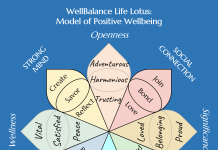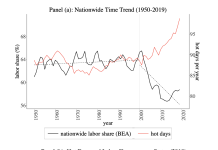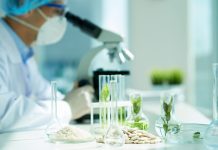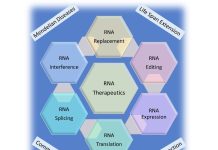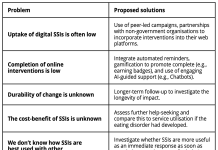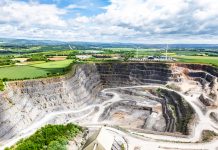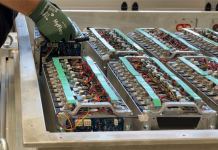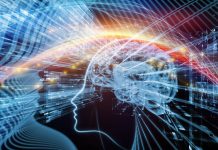Open Access Government produces compelling and informative news, publications, eBooks, and academic research articles for the public and private sector looking at health, diseases & conditions, workplace, research & innovation, digital transformation, government policy, environment, agriculture, energy, transport and more.
Home 2025
Archives
Primate exposure to anthropogenic pollutants: Interactions with the gut microbiome and neuroendocrine SYSTEM
Michael Wasserman of Indiana University discusses interactions among the chemical exposome, microbes, and hormones in wild primates.
How Ukraine’s Naval Institute defies war
Professor Denys Zavhorodnii of the Department of Naval Tactics at the Naval Institute in Odesa, looks at how Ukraine’s Naval Institute defies war to sustain leader development.
Personalizing wellbeing interventions in the digital era
Troy W. Norris’ WellBalance Institute is advancing the science of positive psychology and wellbeing to create personalized plans and practical tools to build happy, flourishing, and resilient lives, workplaces, and communities
Rational use of psychotropic medications in youth
This article examines a holistic approach to youth mental health care and discusses the concept of ‘deprescribing’ as a systematic method for assessing the necessity and risks associated with the continued use of medication.
Revolutionising global vaccine access: The case for Stablepharma’s fridge-free vaccine technology
Stablepharma is focused on improving global vaccine access with its leading candidate, SPVX02. Here, they discuss the challenges of vaccine development and distribution, and highlight how their platform could transform accessibility through fridge-free vaccines.
Philosophy of education in the age of AI
Stephanie Schneider from SUNY Old Westbury explores philosophy and practice, focusing on building future-ready education in the age of artificial intelligence.
Civic powerhouses: How organizations drive volunteering
Rebecca Nesbit and Laurie E. Paarlberg, focus on civic powerhouses, explaining how organizations, such as faith congregations, drive volunteering.
Climate change reduced the labour share in the 21st Century
Masahiro Yoshida, from Waseda University’s Department of Political Science and Economics, presents a new theory and evidence linking climate change to the decline of labour share.
Understanding the role of botanicals in medicine
Dr Erin C. Berthold from Planted in Science Consulting LLC discusses the uses and perceptions of botanical medicines, emphasizing the necessity for coordinated global efforts to understand and regulate these substances to ensure their safe integration into healthcare.
Smaller and warmer: Merging photonics with electronics to build a quantum simulator
Mher Ghulinyan, PhD, is a Senior Researcher at the Centre for Sensors and Devices, Fondazione Bruno Kessler, where he explores the integration of photonics and electronics to develop a quantum simulator.
The oncoming tsunami of RNA therapeutics
Alan Herbert, Founder and President of InsideOutBio, discusses the significant advancements in RNA therapeutics, highlighting their role in supporting public health and their transformative potential in modern medicine, particularly for addressing genetic conditions and cancer.
Prevention of eating disorders with single session interventions: Hype or promise?
Is reducing the risk of eating disorders with single session interventions a hype or a promise? Tracey Wade at the Flinders University Institute for Mental Health and Wellbeing investigates.
Powering production: Vestas aircoil A/S on the cutting edge of digital twin technology
In an exclusive Q&A interview, Vestas Aircoil A/S, a leader in heat exchanger and charge air cooler solutions, sheds light on its transformative journey with digital twin technology.
Harmony among civilizations: The influence of Chinese philosophy on Western idealism and contemporary revolutionary...
Germaine A. Hoston of the University of California, San Diego, demonstrates the influence of Neo-Confucianism on European idealism and Marxist revolutionary thought.
Innovation and sustainability in the geosciences
John Marshall, the Director at Skrinkle Reservoir Geology, examines innovation and sustainability in the field of geosciences.
Human history: What’s most distinctive about humans as a species, viewed collectively?
What’s most distinctive about humans as a species, viewed collectively in human history? Penelope J. Corfield from the Royal Holloway, London University explores this critical question.
Volcanism, volcanic ash, and its role in forest ecology and management
Mark Kimsey, the Director of the Intermountain Forestry Cooperative, discusses volcanism, volcanic ash, and their roles in forest ecology and management.
Shaping the future of circular and sustainable urban mobility
Advancing circular and sustainable urban mobility and logistics are essential for the future of Europe’s green transition and achieving the European Union’s (EU) climate neutrality goal by 2050, as highlighted here by Irene Jubany from the Eurecat Technology Centre.
Consciousness research: The science that changes everything for CEOs
Find out here why the world’s most successful business leaders are embracing consciousness research to drive sustainable transformation.
Enabling preventive medicine and improving patient care via aptamer-based molecular monitors
As health systems put greater focus on preventive, personalized care, Netzahualcóyotl Arroyo-Currás tells us about the broad benefits of Continuous Molecular Monitors (CMMs) in providing insights into biomolecular markers that facilitate early disease detection.



